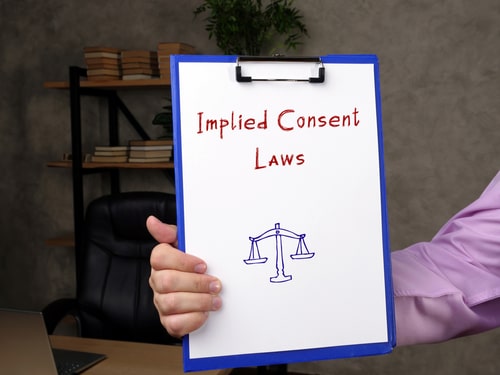Recent Blog Posts
The Consequences of Illinois Auto Theft
 Auto theft falls under general theft in Illinois and is often associated with other crimes like burglary, criminal trespassing, and aggravated battery. No matter what you plan to use the stolen vehicle for, whether joyriding or committing another crime, it is a serious charge with serious penalties. To have someone fight for your rights when facing an auto theft charge, you should get an experienced lawyer.
Auto theft falls under general theft in Illinois and is often associated with other crimes like burglary, criminal trespassing, and aggravated battery. No matter what you plan to use the stolen vehicle for, whether joyriding or committing another crime, it is a serious charge with serious penalties. To have someone fight for your rights when facing an auto theft charge, you should get an experienced lawyer.
Auto Theft in Illinois
Illinois’ general theft law prohibits a person from:
- Knowingly taking or obtaining control over another’s property
- Taking another’s property without authorization or through deceptive or threatening means while knowing that the property is stolen
Differences Between Blackmail, Bribery, and Extortion
 Some people may be confused when they hear the terms blackmail, bribery, and extortion used in a sentence. All of the mentioned terms are generally considered white-collar crimes involving exchanging money, goods, or services. However, understanding their differences may help you further understand what you may be facing when charged with a crime concerning any of these terms. For a deeper understanding of your specific charges, contacting an attorney for a meaningful discussion on where you stand is highly suggested.
Some people may be confused when they hear the terms blackmail, bribery, and extortion used in a sentence. All of the mentioned terms are generally considered white-collar crimes involving exchanging money, goods, or services. However, understanding their differences may help you further understand what you may be facing when charged with a crime concerning any of these terms. For a deeper understanding of your specific charges, contacting an attorney for a meaningful discussion on where you stand is highly suggested.
Bribery
When a perpetrator involves another participant in their crime by offering something the participant wants in return for a favor, it is considered bribery. Bribery often consists of one side being in a lower position of power where they convince the participant that the crime will benefit them and ultimately go unnoticed. An example is when a criminal caught in the act attempts to make an offer to the arresting police officer that will see the officer rewarded for letting the criminal off the hook.
What to Know About the Implied Consent Law
 Under Illinois law, police officers can pull you over under suspicion of driving under the influence (DUI) and subject you to testing. Being pulled over for other things, such as speeding or a broken tail light, can also subject you to DUI testing if the officer suspects you may be driving intoxicated. This could lead to you being arrested on DUI charges, so it would be wise to consult an attorney as soon as you are available.
Under Illinois law, police officers can pull you over under suspicion of driving under the influence (DUI) and subject you to testing. Being pulled over for other things, such as speeding or a broken tail light, can also subject you to DUI testing if the officer suspects you may be driving intoxicated. This could lead to you being arrested on DUI charges, so it would be wise to consult an attorney as soon as you are available.
Implied Consent Details
When you get behind the wheel of a motor vehicle and take it out onto Illinois roads, you are giving implied consent to law officers to submit you to testing for DUI. Testing can be:
- Chemical
- Blood sample
- Urine sample
New Laws in Illinois Banning Assault Weapons
 Governor JB Pritzker signed into law an assault weapons ban in January of 2023. The ban immediately prohibited anyone from selling over 170 variations of guns and attachments in the state of Illinois. All Illinois residents received a January 1, 2024 deadline to register their already-owned firearms from the list. Those who failed to do so can now face a Class 2 felony charge if found in possession of these weapons. Weapon possession charges are a serious offense in Illinois, and anyone facing them would do well to consult a criminal defense attorney immediately.
Governor JB Pritzker signed into law an assault weapons ban in January of 2023. The ban immediately prohibited anyone from selling over 170 variations of guns and attachments in the state of Illinois. All Illinois residents received a January 1, 2024 deadline to register their already-owned firearms from the list. Those who failed to do so can now face a Class 2 felony charge if found in possession of these weapons. Weapon possession charges are a serious offense in Illinois, and anyone facing them would do well to consult a criminal defense attorney immediately.
Protect Illinois Communities Act
The Illinois law signed by Gov. JB Pritzker is meant to safeguard Illinois communities by outright banning the sale of specified rifles, shotguns, and semi-automatic pistols. The signing was in direct response to the tragedy that unfolded at the Fourth of July parade in Highland Park, a Chicago suburb where seven shooting deaths occurred.
Failing To Move Over for an Emergency Vehicle
 Whether it be a stationary ambulance attending to the victim of an accident or a police vehicle chasing down a speeding driver, there are rules all drivers must follow in these scenarios. Scott’s Law, also known as the “Move Over” Law, requires all drivers to proceed with caution around emergency vehicles and yield the right-of-way if necessary and able to do so. Failure to respond accordingly can result in a traffic violation ticket with mandatory fees or more. Those unfamiliar with Scott’s Law and requiring additional information or representation should consult an attorney.
Whether it be a stationary ambulance attending to the victim of an accident or a police vehicle chasing down a speeding driver, there are rules all drivers must follow in these scenarios. Scott’s Law, also known as the “Move Over” Law, requires all drivers to proceed with caution around emergency vehicles and yield the right-of-way if necessary and able to do so. Failure to respond accordingly can result in a traffic violation ticket with mandatory fees or more. Those unfamiliar with Scott’s Law and requiring additional information or representation should consult an attorney.
Scott’s Law Origins
Named for Chicago Fireman Lieutenant Scott Gillen, the Illinois legislature passed Scott’s Law after Lt. Gillen was struck and killed while aiding motorists who had suffered an accident. The driver who struck Lt. Gillen was driving in the adjacent lane to where the Chicago Fireman was attending to the motorists and did not see him before it was too late.
Defending Yourself Against Indecent Liberties Charges
 Oftentimes, in cases where there are alleged indecencies with a minor, the only witnesses are the defendant and the child. A minor’s testimony can be compelling, garnering sympathy in the courtroom. A child could also be mistaken about what occurred or coached to make the defendant look guilty. When dealing with such cases, it helps to have an experienced and skillful attorney representing your best interest and safeguarding your legal rights.
Oftentimes, in cases where there are alleged indecencies with a minor, the only witnesses are the defendant and the child. A minor’s testimony can be compelling, garnering sympathy in the courtroom. A child could also be mistaken about what occurred or coached to make the defendant look guilty. When dealing with such cases, it helps to have an experienced and skillful attorney representing your best interest and safeguarding your legal rights.
What are Indecent Liberties?
Indecent liberties are improper acts committed by individuals that society regards as lewd or obscene. The spectrum for what is considered indecent liberty with a minor is broad but can include actions such as:
- “French kissing” (kissing with tongues)
- Engaging in or attempting to engage in sexual acts or sexual intercourse
- Exposing one’s genitals or masturbating in front of a child
Credit Card Fraud in Illinois
 The stores are flooded with many people out buying gifts for family and friends this holiday season. A large portion of these individuals will likely be using their credit cards and might not otherwise be aware of additional unauthorized purchases on their bank statements. Illinois takes credit card fraud very seriously, and a conviction can see alleged criminals facing lengthy jail sentences. For defense against credit card fraud charges, it would be wise to consult an attorney.
The stores are flooded with many people out buying gifts for family and friends this holiday season. A large portion of these individuals will likely be using their credit cards and might not otherwise be aware of additional unauthorized purchases on their bank statements. Illinois takes credit card fraud very seriously, and a conviction can see alleged criminals facing lengthy jail sentences. For defense against credit card fraud charges, it would be wise to consult an attorney.
Credit Card Fraud Defined By Illinois Law
Many different crimes can fall under credit card fraud, which include:
- False statements made for the issuance of a credit or debit card
- Possessing someone else’s credit or debit card with intent to make unauthorized purchases
- Knowingly having a lost credit or debit card with the intent to use it to make purchases
Understanding Vehicle Impoundment Laws Post DUI Arrest
 When pulled over under suspicion of driving under the influence (DUI) in Illinois, you run the risk of being arrested and having your car impounded. Once arrested, the officer who arrested you can have your car towed and impounded if no one is available to drive the vehicle. Once you are released, retrieving your impounded vehicle can be very difficult and expensive. Facing a DUI charge and attempting to retrieve your car from an impound lot can be made easier through a skilled and experienced attorney.
When pulled over under suspicion of driving under the influence (DUI) in Illinois, you run the risk of being arrested and having your car impounded. Once arrested, the officer who arrested you can have your car towed and impounded if no one is available to drive the vehicle. Once you are released, retrieving your impounded vehicle can be very difficult and expensive. Facing a DUI charge and attempting to retrieve your car from an impound lot can be made easier through a skilled and experienced attorney.
Facing Vehicle Impoundment
After an arrest, leaving your vehicle in the area you were pulled over could become a safety hazard. As such, the police officer will have to have it removed. Having a sober person inside the vehicle at the time of arrest can help save your vehicle from impoundment. However, if there are no sober individuals or any people at all in your car at the time of the arrest, the arresting officer will have no choice but to have the vehicle impounded.
Defending Against Sex Crime Charges in Illinois
 Sex crime charges and convictions carry life-changing consequences and need to be taken seriously. When facing such charges, you are encouraged to seek professional legal counsel immediately. Understanding the charges being levied against you and how to combat them is important to your defense. An aggressive attorney with experience defending clients against sex crimes is your best bet to protect your reputation while upholding your rights.
Sex crime charges and convictions carry life-changing consequences and need to be taken seriously. When facing such charges, you are encouraged to seek professional legal counsel immediately. Understanding the charges being levied against you and how to combat them is important to your defense. An aggressive attorney with experience defending clients against sex crimes is your best bet to protect your reputation while upholding your rights.
Avoid Self-Incrimination
Once you have been accused of a sex crime, it is in your best interest to remain silent. This means you do not discuss the case with anyone other than your legal representation. Do not answer police questions during interrogation, no matter how you think it makes you look. Anything you say can and will be used against you in trial, so do not give the prosecution any fuel to throw on the fire.
What You Need to Know About Reckless Homicide
 Not to be confused with criminal negligence, reckless homicide involves the “reckless behavior” of an individual which results in the death of another person. Most states place reckless homicide on the same level as involuntary manslaughter. In Illinois, reckless homicide is sometimes referred to as vehicular homicide and can often be difficult to prove in a court of law. Defendants needing assistance in their case would do well to consult with a criminal defense attorney experienced in reckless homicide charges.
Not to be confused with criminal negligence, reckless homicide involves the “reckless behavior” of an individual which results in the death of another person. Most states place reckless homicide on the same level as involuntary manslaughter. In Illinois, reckless homicide is sometimes referred to as vehicular homicide and can often be difficult to prove in a court of law. Defendants needing assistance in their case would do well to consult with a criminal defense attorney experienced in reckless homicide charges.
What is Criminal Negligence?
A criminally negligent act involves an individual behaving outside of the standard for a reasonable person when it comes to caring about the impending results of their actions, but not in a reckless way. To simplify the difference between criminal negligence and reckless homicide, criminal negligent actors do not know that their actions could result in another person losing their life, whereas someone acting recklessly would.














